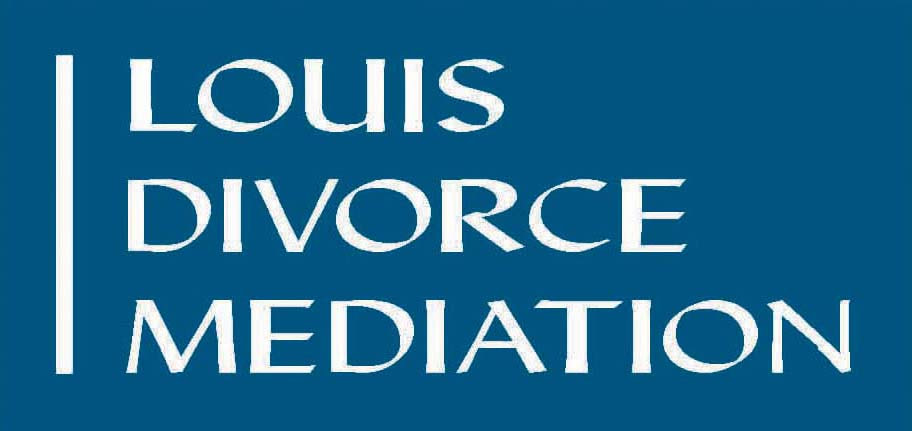Louis Divorce Mediation ~ Online and In-Person Mediation in Chicago
|
Erosion of trust is a hallmark of the failure of many marriages. Marriages, of course, fail for many reasons. For some, the relationship weakens over time and the circumstances of growing apart, goals diverging or communication breaking down are relatively passive. In that case the trust between spouses may not have weakened in spite of the weakening of the relationship.
However, there are marriages where the actions of one or both spouses may directly lead to a breakdown in the marriage. A breach of trust characterizes these marriages, where there is infidelity, financial irresponsibility, controlling behavior or abusive acts—whether physical, verbal or emotional. The absence of trust is a formidable barrier to a healthy future relationship. In marriages without children, this may not feel as important to you. However, if you are going continue to parent together in separate households, lack of trust creates a significant emotional challenge. The process you choose to end your marriage can have a profound impact on whether the trust that has stayed intact in your relationship will remain so, and whether the trust that has been lost can be rebuilt. Divorce mediation has a much greater chance of positively influencing that trust than does litigation. The process you choose to end your marriage can have a profound impact on whether the trust that has stayed intact in your relationship will remain so, and whether the trust that has been lost can be rebuilt. Divorce mediation has a much greater chance of positively influencing that trust than does litigation. If you decide to litigate your divorce, you are choosing an adversarial process that is invasive and expensive; and, depending on the attorneys who are participating in the litigation, you may find yourself in a long-term contentious battle with your spouse. Think about what the chances are for the trust that remained in a passive decline of a marriage to withstand this kind of challenge. And if you have already lost trust in each other, will the opportunity to rebuild trust over time be squandered? What will your children observe about your parental relationship when the trust between you has evaporated? In contrast, I believe that mediation offers an opportunity for most broken marriages to end without any further erosion in trust. In fact, the mediation process you engage to maintain control over how your marriage ends will conclude by creating a mutual plan. This can be a first step in rebuilding trust. As a mediator, I’m committed to helping my clients build healthy futures that can maintain a foundation of trust, or at least begin the process of rebuilding trust. I’m not saying it’s easy, but it is worth considering how an environment that fosters collaboration and civility contrasts more favorably with one that pits one spouse against the other.
0 Comments
Clients often ask me, “What do you think?” The question is totally understandable. Most of my clients haven’t been divorced before, so this is a new and challenging time for them, and they are seeking help.
Any answer I may offer to that question will sound like my opinion, and opinions are usually not neutral. Similarly, when first meeting with clients, I’ve been asked what I will do if I think an agreement they are making is not “fair.” Leaving aside the premise that “fair” is subjective, this raises an important question, namely, what is a mediator to do when the mediator thinks that an agreement between the spouses is in fact one-sided? For me, the answer is based on two principles: informed decision making and self-determination. Throughout the mediation process, I am facilitating the exchange of information, whether it be legal information for you if you don’t retain an attorney during mediation, or analysis of financial information provided by you to create a common understanding of financial circumstances. In those rare circumstances where I can see a true imbalance in the negotiated settlement, I use the information of the settlement to test the decisions that have been made and seemingly accepted by both of you. For example, in a recent case, I provided a summary of an unbalanced settlement in clear but un-opinionated terms, so that the person who appeared to be getting much less could see how much less they were getting. Similarly, where the assets being divided by agreement seemed to leave that same spouse at a financial disadvantage, I provided the information without comment. Numbers don’t lie, and numbers by themselves reflect neutral information. And this is where self-determination fits it. I may personally think that a settlement is unbalanced, so I may offer information—to give you space and time to reconsider and reopen the discussion, or (as in the case above) to consult with an attorney and get the support of legal advice. However, ultimately, it will be your decision alone, and not mine; you are the one who determines what is acceptable. As a final step, I may also exercise my own curiosity to ask you why you feel a particular agreement is acceptable in light of the objective information that has been shared. The answer quite often reveals a set of values or principles that are more important to you than the information itself. Being neutral is not the same as being a potted plant in the mediation room! There is plenty I as mediator can say and do to help you make the decisions that work for you without inserting my own opinions and judgments into the mediation process. Being neutral is not the same as being a potted plant in the mediation room! There is plenty I as mediator can say and do to help you make the decisions that work for you without inserting my own opinions and judgments into the mediation process. In a recent consultation, a new client told me he had been advised by two different attorneys to steer clear of mediation. While I didn’t probe too deeply, it seemed that the attorneys thought mediation would leave this client unprotected and vulnerable to being taken advantage of by his spouse.
I appreciated that the client chose to explore mediation as a process option in spite of being advised otherwise. At the same time, I struggled with hearing (not for the first time, and probably not for the last) about an attorney speaking negatively about mediation. There are quite a few divorce attorneys who also present themselves as “mediators,” some with extensive training and experience, and others, perhaps not as much. I have thought for some time that the undeserved negative reputation ascribed to mediation by some attorneys is diminishing. Admittedly, as a mediator who has great passion for my work, these negative statements feel disrespectful to all of us who seek to help others come to their own resolution on their own terms. I believe that attorneys who speak negatively about mediation either don’t understand the mediation process or perhaps don’t even want to understand the process, as they would prefer to step in and “protect” you and even “save” you from making your own decisions that they don’t agree with. From a pragmatic perspective, I believe that attorneys who speak negatively about mediation either don’t understand the mediation process or perhaps don’t even want to understand the process, as they would prefer to step in and “protect” you and even “save” you from making your own decisions that they don’t agree with. I would be the first to say that a divorce is a significant life-changing event involving strong emotions that can leave you vulnerable. However, the mediation process can and is structured to protect you while also allowing you to engage in a conversation with a-soon-to-be-ex-spouse in order to plan for separate lives and possible co-parenting. All the clients who have come into mediation with me after beginning a litigated divorce have told me that their litigation lawyers discouraged them from talking to their spouses. How are solutions to be found when there is no conversation? The unfortunate answer is that other people make those decisions for you, and the lawyers (and, in the most contentious cases, the judge) control the process and the outcome. As a mediator, I must remain neutral, which is not the same as being uninvolved in providing a safe and calm environment for informed decision making. These are some of the principles to which I adhere, serving to protect you as a client engaged in mediation:
It may be true that a litigated divorce can result in one spouse or the other getting more money, support or parenting time than what might be negotiated in mediation. To the litigator who promotes this concept, I would ask two questions: (1) can you guarantee it? and (2) what will it cost the client in time, money and anguish? This you can count on: In mediation, you can be assured of a timely process, cost effectiveness, a safe environment and a result you control. |
Categories |
David Louis, MPA, CDFA® • Louis Mediation Services - Chicago
|
Chicago Office: 1700 W Irving Park Rd., Suite 105, Chicago, IL 60613
Northbrook Office: 555 Skokie Blvd., Suite 500, Northbrook, IL 60062 |
Copyright © 2024




 RSS Feed
RSS Feed